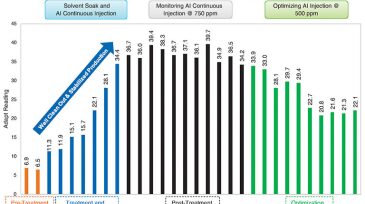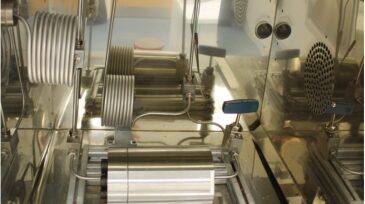Flow assurance
The authors of this paper describe a project to develop a virtual sensor to monitor the cooling effect downstream of a subsea choke to avoid hydrate plugs during cold-start operations.
Subject-matter experts from industry and academia advanced distributed fiber-optic sensing technologies and their implementation in flow measurement during a special session.
This paper reports the observation of stealth asphaltenes, a potential flow-assurance issue, by means of experimental analysis.
-
The recurring long-term mitigation of slugging and various flow-assurance phenomena are challenging issues that demand attention and considerable technical effort. The three papers outlined here discuss slightly different issues and approaches to slug-flow phenomena and flow assurance.
-
The complete paper develops a plausible physical model of the experimentally observed pseudoslug liquid-holdup phenomenon and models physical and hydrodynamic behavior using a dimensional regression modeling approach.
-
A multizone water-injection project has ultimately proved a method of using intelligent completion interval-control valves in place of traditional sand-control completions in soft sand reservoirs.
-
The paper describes options for hydrate and integrity management and the required modifications to both subsea and topside facilities to enable an operational philosophy change.
-
Production of paraffinic crude presents challenges due to depressurization and cooling of crude oil during production.
-
Researchers use novel methodology to measure the thermo-electric properties of native crude.
-
This paper analyzes the risk of hydrate formation and blockage, aiming at various gas/liquid flow patterns and considering the phase distribution and interface distribution characteristics of different flow patterns.
-
Wood is Shell’s exclusive partner for Shell’s Smart Choke technology, which suppresses riser-induced slugging.
-
The complete paper describes the generation of additional fundamental solubility data under HP/HT conditions and comparison of the obtained values with several existing models.
-
Approved in October, the Flow Measurement Technical Section will help engage the greater SPE technical community in flow-measurement-related issues and technologies. It will cover the full spectrum of flow measurement, including single-phase and multiphase flow.













